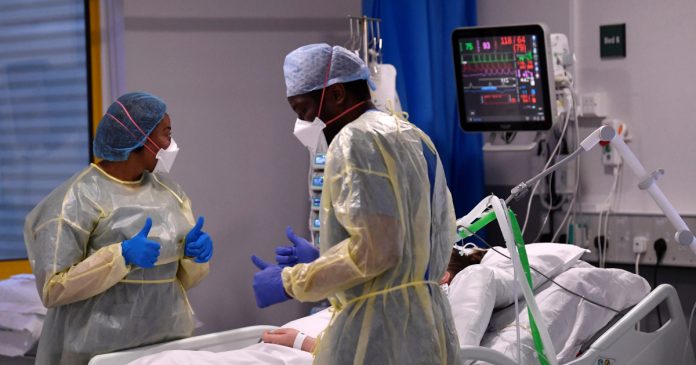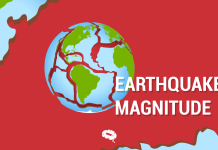[ad_1]
The number of confirmed coronavirus cases worldwide has passed 100 million.
The shocking milestone was reached on Tuesday, according to Johns Hopkins University data, just over a year after the first case was reported in Wuhan, China.
Over the past 12 months, the pandemic has forced governments to order shutdowns, curfews, travel bans and other public health restrictions to try to stem the spread of infections. Economies have been hard hit and inequalities of all types have been exacerbated.
More than 2.1 million people have died from COVID-19 globally, and more than 55 million people have recovered from the disease.
Despite developments in treatments for COVID-19 and the roll-out of vaccines across dozens of countries, mutant strains of the virus recently detected in the United Kingdom, South Africa and Brazil have created uncertainty about when the pandemic is likely to end.
“Today the world crossed 100 million reported cases,” Caitlin Rivers, an epidemiologist and assistant professor at Johns Hopkins Bloomberg School of Public Health, said on Tuesday.
“A year ago, the novel coronavirus was barely making headlines. Where do we want to be a year from now? Let’s aim for robust vaccination coverage worldwide, and a transition from community mitigation to case-based management,” she tweeted.
‘Beat COVID-19’
The United States has recorded the most cases of any country to date at more than 25.3 million – around one quarter of the global total. With over 424,000 deaths recorded, the US also has the highest death toll in the world.
US President Joe Biden, who was inaugurated last week and has promised to get surging infection rates under control, said in a news conference on Tuesday that his administration plans to purchase 200 million more vaccine doses.
“The end goal is to beat COVID-19, and the way we do that is to get more people vaccinated,” Biden told reporters.
India has confirmed the second-highest total number of cases in the world, with more than 10.6 million infections reported. More than 153,000 people have died from the virus there.
Brazil has confirmed more than 8.8 million cases and has the second-highest death toll, with 217,000 fatalities.
Brazilian President Jair Bolsonaro, who has downplayed the threat of the virus, has faced growing protests for his government’s handling of the pandemic – and the particularly devastating toll it has taken on the Amazonian city of Manaus, where oxygen is in short supply and hospitals are full.
The UK also hit its own grim milestone on Tuesday, becoming the first country in Europe – and the fifth in the world – to record more than 100,000 coronavirus-related deaths. “I am deeply sorry for every life that has been lost and, of course, as prime minister, I take full responsibility for everything that the government has done,” Prime Minister Boris Johnson said.
New variants
The discovery of new variants of the virus has caused governments around the world to impose fresh restrictions as they seek to contain its spread.
US pharmaceutical company Moderna said it believes its COVID-19 vaccine is effective against the new variants, although it will test a new booster shot aimed at the strain discovered in South Africa after tests showed the antibody response could be reduced.
The vaccine developed by American pharmaceutical firm Pfizer and its German partner BioNTech works against 15 possible virus mutations. However, E484K, another mutation in South Africa, is not among those tested, according to a study released on January 7.
US infectious disease expert Dr Anthony Fauci said earlier this month that vaccines are designed to recognise multiple parts of the spike protein, which makes it unlikely a single mutation could be enough to prevent them from being effective.
However, he warned last week that current vaccines may not be as effective in protecting against the new and more contagious strains.
Concerns are also mounting in Europe over delayed shipments of COVID-19 vaccines, with governments saying the supply issues were costing critical time during the early stages of the roll-out to care homes and hospital personnel.
The European Union on Tuesday warned pharmaceutical giants that have developed coronavirus vaccines with EU aid that it must get its shots on schedule, a day after the bloc threatened to impose export controls on vaccines produced within its borders.
[ad_2]
Source link











